Updated on March 1, 2023:
Walid Ahmed Shawky was released on April 24, 2022.
On June 15, 2021, Several human rights organizations demanded the immediate release of Shawky. These organizations concluded that Shawky's arbitrary detention was in retaliation for previous political activism and the peaceful exercise of his freedom of expression and association.
Summary
Walid Ahmed Shawky is a dentist and former leading member of the April 6 Youth movement in Egypt. Security forces arbitrarily detained him on October 14, 2018 from his private dental clinic in al-Sayeda Zainab district in Cairo. He was forcibly disappeared until he appeared before the Supreme State Security Prosecution (SSSP) on October 20, 2018.
The SSSP listed Shawky as a defendant in Case No. 621/2018 and accused him of joining an illegal group, misuse of social media and spreading false news. After a court decision on August 23, 2020, to release Shawky on probation, the National Security did not release him but instead forcibly disappeared him for more than a month. They brought him before the SSSP on October 6, 2020 and re-accused him of the same charges, this time based on acts that he could not have committed, because he was in detention at the time. To date, Shawky remains in unlawful and endless pre-trial detention.
Methodology
DAWN researchers interviewed sources close to the detainee, investigated official documents, and consulted other information from published sources that we consider to be reliable. DAWN is not disclosing the identity of the interviewees to protect their security. They are referred to as indicated below, including the dates of the interviews:
- Interview with source A, on June 12, 14, July 3 and September 4, 2020.
- Interview with source B, on June 9, 13, 15, September 4 and October 8, 2020.
- Interview with source C, on July 19, 2020.
- Interview with source D, on June 20, 2020.
- Interview with source E, on August 25, 2020.
Personal Background
Walid Ahmed Shawky Elsayed Badran is a dentist born on February 11, 1987, in the city of Mansoura, Dakahlia Governorate in Egypt. Shawky graduated from the Faculty of Dentistry, Mansoura University in 2009. During the 2011 Egyptian revolution, he was a member of the politburo of the April 6 Youth Movement, a pro-democracy grassroots movement that helped organize the January 25, 2011 protests that escalated into a popular uprising and ended President Mubarak's 30-years of autocratic rule in Egypt.
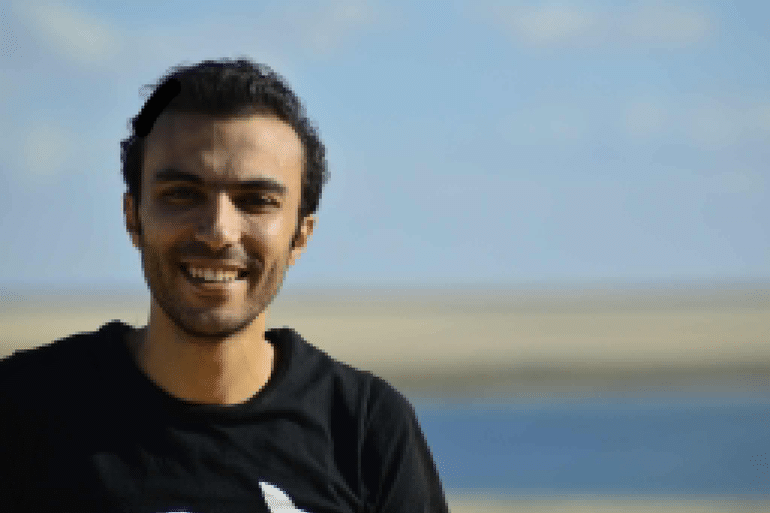
However, according to his lawyer and family members, like many other activists, Shawky gradually distanced himself from organized political opposition since the July 3, 2013, popular-backed military coup. He is married to Heba Anees, a journalist, and they have a three-year-old child, Nour.
Professional Background
Shawky is a practicing dentist, former member of the April 6 Youth Movement and an op-ed contributor to Egyptian and Arabic independent news outlets including Mada Masr and al-Manassa. His writings often critique the 2011-2013 Egyptian revolutionary movement, but he also uses them to reflect on his life and time in prison. Below are some of his articles:
- The Same Case, the Same Old Mistakes
- Moustafa Kasem: The Question of Existence and Nothingness
- A Look from the Prison's Window: Why Don't You Stand in the Balconies?
- Shady Habash: A watershed point at which the circle ends
Shawky's blog and Twitter account are available here:
- Photography blog: https://walidphoto.wordpress.com/2007/07/
- Twitter: https://twitter.com/walid878
Time and Circumstances of Arrest
Late in the afternoon on Sunday October 14, 2018, four security officers arrested Shawky at his private dental clinic in al-Sayeda Zainab district in Cairo. In an interview with DAWN on June 20, 2020, source D, who eyewitnessed the arrest, said that four plain-clothed and uniformed security officers raided the clinic and that they took Shawky to al-Sayeda Zainab police department. Source A told DAWN on June 12, 2020 that when Shawky's wife inquired about his detention at the police station, the officers denied any knowledge of his whereabouts.
A week later on October 20, when Shawky first appeared at the Supreme State Security Prosecution (SSSP), he stated, according to source A, that police had held him incommunicado for six days inside al-Sayeda police station. His extended detention violates Article 36 of Egypt's Code of Criminal Procedure, which stipulates that an apprehended person shall be sent "within 24 hours to the competent public prosecution. The public prosecution shall question him within 24 hours, and hence shall order his arrest or release."
Pursuant to orders of the State Security Prosecution and the terrorism courts of the Cairo and Giza Criminal Courts, security officials have held Shawky in pre-trial detention since October 14, 2018 in Cells No. (2/2) and (1/4), Ward No. 4, Tora (Investigation) Prison on the outskirts of Cairo.
Shawky's enforced disappearance was part of a spate of raids in Cairo and Alexandria targeting formerly politically active dissidents. Between October 14 and 16, the police arrested lawyers Sayed al-Banna and Ahmed Sabry Abu Alam. According to Mada Masr, "All three [Shawky, al-Banna and Abu Alam] were previously accused and acquitted in relation to Tiran and Sanafir protests."
Charges
On October 20, 2018, First Deputy Prosecutor of the SSSP Mohammed el-Garf added Shawky to the defendants listed in SSSP Case No. 621/2018. The defendants included Ayman Abdel Moa'ty, Sayed al-Banna, and Khaled Azab. Prosecutor el-Garf levelled the following charges against Shawky:
- Joining a group established contrary to the provisions of the law
- Spreading false news and statements
- Misuse of social media platforms
According to source C whom DAWN contacted on July 19, 2020: the prosecutor neither disclosed the group that Shawky allegedly joined, nor cited the Egyptian penal code articles that constitute the basis for charges against Shawky.
Nevertheless, joining an illegal group is a crime under Article 86 bis of Egypt's Penal Code, which stipulates:
Whoever establishes, organizes, or administers, in contravention of the provisions of the law, an association, body, organization, group or gang, whose purpose is to call for any means to disrupt the provisions of the Constitution or laws or to prevent a state institution or one of the public authorities from exercising Its actions, or assaulting the personal freedom of the citizen or other public freedoms and rights guaranteed by the Constitution and the law, or harming national unity or social peace. Anyone who assumes leadership, or leads in it, or provides material or financial aid with knowledge of the purpose for which it is called, shall be punished with temporary hard labor.
Furthermore, Article 188 of the Penal Code prohibits publishing false news, stipulating:
Whoever publishes in bad intent […] false news, statements or rumors, false or forged papers, or falsely attributed to others, if this would disturb the public peace, cause panic among people, or harm the public interest, shall be punished with imprisonment for a period not exceeding one year and a fine of no less than five thousand pounds and not exceeding twenty thousand pounds, or one of these two penalties.
The third charge against Shawky is likely linked to Article 29 of Egypt's Anti-Terror Law (Law No. 94 of 2015), which stipulates:
Whoever establishes or uses a communications site, website, or other media for the purpose of promoting ideas or beliefs calling for the perpetration of terrorist acts or broadcasting material intended to mislead security authorities, influence the course of justice in any terrorist crime, exchange messages, issue assignments among terrorist groups or their members, or exchange information relating to the actions or movement of terrorists or terrorist groups domestically and abroad shall be punished by imprisonment with hard labor for no less than five years.
Trial and Legal proceedings
- October 14, 2018
Security forces arbitrarily detained Shawky in his Qoronfola Dental Clinic in Cairo and took him by force to al-Sayeda Zainab police department for six days.
- October 16, 2018
Shawky's sister sent a telegram to Prosecutor General Nabil Ahmed Sadek's office to report Shawky's arbitrary arrest by the al-Sayeda Zainab police station. Her correspondence made clear that when the family inquired at the station about Shawky on October 14, 2018, the officials there denied his presence. The family feared that Shawky would face trumped-up charges. Sadek did not respond.
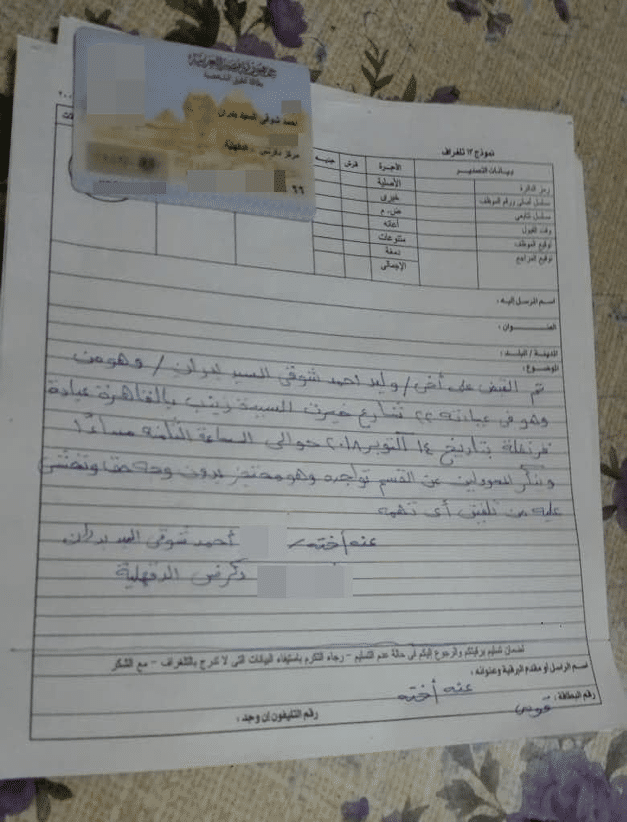
- October 20, 2018
Shawky appeared in the SSSP headquarters in Cairo's Fifth Settlement neighborhood. Source B told DAWN on June 15, 2020 that Prosecutor Mohammed el-Garf interrogated Shawky about his membership in the April 6 Youth Movement, which Shawky said he left over a year earlier.
El-Garf added Shawky to Case No. 621/2018, accusing him and the other defendants of joining an illegal organization, spreading false information, and misuse of social media platforms. El-Garf presented no witnesses or evidence to prove the alleged charges against Shawky.
According to source B, there is no official written copy of the charges. All information about the case comes from the verbal communication of Shawky's lawyers with SSS prosecutors and, later, court officials.
The defendants in this case included other members of April 6 Youth Movement such as Amal Fathy and Sherif Ali Mohammed Ali el-Rouby (commonly known as Sherif el-Rouby), in addition to vlogger and satirist Shady Hussein Abu Zeid, blogger and journalist Mohammed Ibrahim Mohammed Radwan (commonly known as Mohammed Oxygen), activist Shady al-Ghazaly Harb, and lawyers Ahmed Sabry Abu Alam and Sayed Ali Abdel Aal Ahmed (commonly known as Sayed al-Banna).
- October 29, 2018
The SSSP extended Shawky's pre-trial detention for 15 days pending investigation in Case No. 621/2018. During this time, the prosecution provided no evidence to support the charges against Shawky and presented no evidence to establish any of the statutory conditions for pre-trial detention as stipulated in Article 134 of Egypt's Code of Criminal Procedure which permits pre-trial detention only "if one of the following cases or reasons is available:
- In flagrante delicto [if the defendant was caught in the act of committing the crime] …
- Fear of the escape of the defendant
- Fear of harming the interest of the investigation , whether by influencing the victim or witnesses, or by tampering with the evidence and physical clues, or by making agreements with the rest of the perpetrators to change the truth or obscure its features.
- Preventing serious breaches of security and public order that may result from the gravity of the crime.
However, the accused may be held in remand if he does not have a fixed permanent place of residence in Egypt, and the crime is a felony or a misdemeanor, punishable by imprisonment."
According to several lawyers with whom DAWN discussed Shawky's case, since the detainee has a known permanent place of residence in Egypt, the failure of the State Security Prosecution to make clear which of the above stated preconditions were met in his case casts serious doubts on the legality of the decision to hold him in remand detention.
- November 14, 2018
The SSSP extended Shawky's pre-trial detention for 15 days pending investigation in Case No. 621/2018. The prosecutor presented no material evidence or witnesses against Shawky.
- December 16, 2018
The SSSP extended Shawky's pre-trial detention for 15 days pending investigation in Case No. 621/2018.
- December 30, 2018
The SSSP extended the pre-trial detention of Walid Shawky and Ayman Abdel Moa'ty for 15 days pending investigation in Case No. 621/2018.
- February 26, 2019
The SSSP extended the pre-trial detention of Walid Shawky and Ayman Abdel Moa'ty for 15 days pending investigation in Case No. 621/2018.
This session is likely to be Shawky's last renewal session before the SSSP. According to Article 142 and 143 of the Egyptian Code of Criminal Procedures, the prosecution has the right to renew the detention of defendants pending investigations for up to ten consecutive sessions, with 15 days between each two sessions. In other words, the prosecution can extend the detention of a defendant for a maximum of 150 consecutive days. After the 150-day period, a criminal court (Terrorism Circuit or ordinary court) assumes responsibility of the decision to end or extend the detention, with 45 days allowed to pass between each two consecutive sessions. In total, the Code of Criminal Procedure limits the pre-trial detention period to 24 months. After two years of imprisonment, it is mandatory to release the defendant. That is to say, all Shawky's next investigation sessions are to be conducted by a criminal court. It should be noted that some SSSP or court sessions may have been held that are not recorded here due to the total absence of public official documents on Shawky's case.
- April 15, 2019
Judge Usama Abdel Shafy al-Rasheedy, Head of the 29th Circuit of the Giza Criminal Court (renamed on September 15, 2019 the Sixth Terrorism Circuit Courts) extended the pre-trial detention of Walid Shawky, Ayman Abdel Moa'ty, Mohammed Oxygen, Sayed al-Banna, Sherif el-Rouby, and Mohammed Khalid for 45 days pending investigation in Case No. 621/2018.
- June 11, 2019
The Cairo Criminal Court extended the pre-trial detention of Walid Shawky, Ayman Abdel Moa'ty, and Sayed al-Banna for 45 days pending investigation in Case No. 621/2018.
- September 3, 2019
The Cairo Criminal Court extended the pre-trial detention of Walid Shawky and Sayed al-Banna for 45 days pending investigation in Case No. 621/2018.
- October 23, 2019
The Cairo Criminal Court ordered the release of Walid Shawky, Ayman Abdel Moa'ty, and Sayed al-Banna with precautionary measures pending investigation in Case No. 621/2018.
- October 24, 2019
The Cairo Criminal Court accepted the appeal filed by Khaled Diaa el-Din, First Attorney General of the SSSP, against the release order and extended the defendants' pre-trial detention for 45 days.
- December 3, 2019
The Cairo Criminal Court ordered the release of Walid Shawky, Ayman Abdel Moa'ty, and Sayed al-Banna with precautionary measures pending investigations in Case No. 621/2018.
- December 5, 2019
Judge Shabeeb al-Damarany Abu Asr, Head of the Third Terrorism Circuit of the Cairo Criminal Court, accepted the appeal filed by the SSSP against the release order and extended the defendants' pre-trial detention for 45 days.
- March 4, 2020
Judge Mohamed Sherin Fahmy, Head of the First Terrorism Circuit of the Cairo Criminal Court, extended the pre-trial detention of Walid Shawky, Ayman Abdel Moa'ty, and Sayed al-Banna for 45 days pending investigation in Case No. 621/2018.
- May 3, 2020
Judge Moataz Khafagy, Head of the Second Terrorism Circuit of the Cairo Criminal Court, had postponed the session to decide on the pre-trial detention of Walid Shawky and Sayed al-Banna to May 7, 2020, in which he extended their pre-trial detention for 45 days pending investigation in Case No. 621/2018.
According to source E who attended the May 3 session, the Court Bailiff and a prosecution employee told the lawyers that the session had been postponed from May 3 to May 10, 2020, but the lawyers were surprised to know that another session was scheduled for Shawky and others on May 7, 2020, and that Judge Khafagy's decision was to extend all the defendants' pre-trial detention for 45 days without giving them or their lawyers a chance to present arguments or even attend the court session.
- June 1, 2020
Judge Moataz Khafagy, Head of the Second Terrorism Circuit of the Giza Criminal Court, postponed the session to decide on the pre-trial detention of Walid Shawky, Ayman Abdel Moa'ty, and Sayed al-Banna because the defendants were not brought out of detention to the courthouse.
The Tora Prison's abdication of its responsibility to bring the detainees before the court violates Article 77 of Egypt's Prisons Organization Law No. 396 of 1956,which stipulates: "The prison's warden is responsible for implementing any order he receives from the Public Prosecution, from the investigating judge […] or from the court requesting he bring a prisoner; he shall see to it that the prisoner who is requested is sent at the specified date and time."
- July 1, 2020
Judge Mohamed Sherin Fahmy, Head of the First Terrorism Circuit of the Cairo Criminal Court, postponed the session to decide on the pre-trial detention of Walid Shawky, Ayman Abdel Moa'ty, Sayed al-Banna, and Khaled Azab to July 15 because the defendants could not be brought out of detention to the courthouse.
- July 15, 2020
Judge Mohammed Saeed el-Sherbiny, Head of the Fifth Terrorism Circuit of the Cairo Criminal Court, postponed the session to decide on the pre-trial detention of Walid Shawky, Ayman Abdel Moa'ty and Sayed al-Banna.
- July 22, 2020
Judge Mohamed Sherin Fahmy, Head of the First Terrorism Circuit of the Cairo Criminal Court, extended the pre-trial detention of Walid Shawky, Ayman Abdel Moa'ty and Sayed al-Banna for 45 days pending investigation in Case No. 621/2018.
- August 23, 2020
Judge Rafaat Mahmoud Zaki of the First Terrorism Circuit of the Cairo Criminal Court, ordered the release of Walid Shawky, Ayman Abdel Moa'ty and Sayed al-Banna on probation pending investigation into the charges against them. The released defendant will have to spend some hours in two days per week at the police station in his place of residence.
- August 26, 2020
A police force from the Tora Prison transferred Shawky from the prison to al-Khalifa police station in Cairo.
- August 30, 2020
A police force transferred Shawky from al-Khalifa police station in Cairo to Mansoura city in Dakahlia Governorate. Mansoura security forces then transferred Shawky to Dekernes town, his place of residence. According to source B, Shawky spent the next two days, August 31 and September 1, 2020, at Dekernes police station where his family was able to visit him.
- September 2, 2020
According to source A, security forces forcibly disappeared Shawky from Dekernes police station. The officers told family members he was not there and that they didn't know where he was.
- October 6, 2020
Following the pervasive prosecutorial practice of entrapping political detainees in endless "recycling" (also described as "revolving door" or "rotating") cases, Shawky appeared before the SSSP on October 6. The SSSP added him as a defendant in a new case: SSSP Case No. 880/2020.
"Recycling" cases refer to the practice whereby Egyptian prosecutors recycle the charges against a detainee in a new case because the detainee has already been held in pretrial detention for the maximum amount of time (two years) permitted by law. The new case allows prosecutors to start a new two-year period of pretrial detention without having presented evidence or completed a trial in the original case. In some cases, even where a court has found the detainee not guilty, the prosecution will recycle the same charges in a new case, again allowing them to continue a "pre-trial" detention period of up to two years.
Nabeh Elganadi, a member of Shawky's defense team, wrote on October 6, 2020, that the SSSP added Shawky as a defendant to SSSP Case No. 880/2020, accusing him of:
- Joining a terrorist organization
- Spreading false news
- Misuse of social media
- Taking part in a protesting crowd
The SSSP had already accused Shawky of the first three charges in the 2018 case, and it would have been impossible for Shawky to commit the fourth "crime", participation in a demonstration, because he had been in detention continuously since October 14, 2018.
On September 17, 2020, prosecutors also charged Ayaman Abdel Moa'ty and Sayed al-Banna, Shawky's fellow defendants in Case No. 621/2018, in the new case, Case No. 880/2020. According to family members, prior to that date, the National Security forcibly disappeared them for almost two weeks from Shubra el-Kheima police station, in Qalyubia Governorate, where they were supposed to be released. In other words, the Egyptian authorities never implemented the Cairo Criminal Court's August 23, 2020 order to release Shawky, Moa'ty and al-Banna from pretrial detention.
According to source B, who communicated with DAWN on October 7, 2020, the National Security's arrest report of Shawky claimed that he was arrested on October 6, 2020 while taking part in a protest. In fact, there was no new arrest, because National Security officers never released Shawky, and between September 2, 2020 and October 6, 2020, they disappeared him into unidentified detention facilities.
The SSSP Prosecutor Mohammed el-Garf accepted into the case record the date and location of arrest that the National Security provided, even though it was false, and even though Shawky's family had submitted a complaint to the General Prosecutor reporting that Shawky was not released and had been forcibly disappeared. Even though the National Security officers (the plaintiffs in the new case) brought no evidence to support the above charges, Prosecutor el-Garf ordered Shawky to be held in pre-trial detention for 15 days pending investigation in Case No. 880/2020. This order violates Articles 61 and 154 of Egypt's Code of Criminal Procedure, which stipulate that the prosecution or investigative judge must terminate a case if there is no basis to continue with the prosecution or if the evidence is insufficient, and Principle 14 of the UN Guidelines on the Role of Prosecutors, which stipulates:
Prosecutors shall not initiate or continue prosecution, or shall make every effort to stay proceedings, when an impartial investigation shows the charge to be unfounded.
- February 23, 2021
The Cairo Criminal Court's 3rd terrorism circuit renewed Shawky's pretrial detention for 45 days. DAWN documented the renewal of Shawky's detention for 45 days on March 28, 2021, May 9, 2021, and August 30, 2021.
- June 15, 2021
Several human rights organizations demanded the immediate release of Shawky. These organizations concluded that Shawky's arbitrary detention was in retaliation for previous political activism and the peaceful exercise of his freedom of expression and association.
- August 30, 2021
The Cairo Criminal Court's Terrorism Circuit renewed Shawky's pretrial detention for 45 days.
- October 12, 2021
The Cairo Criminal Court's Terrorism Circuit renewed Shawky's pretrial detention for 45 days.
- December 29, 2021
The Cairo Criminal Court's Terrorism Circuit renewed Shawky's pretrial detention for 45 days.
- February 8, 2022
The Cairo Criminal Court's Terrorism Circuit renewed Shawky's pretrial detention for 45 days.
Detention Conditions
According to a conversation on June 9, 2020 with source B, who spoke with Shawky, State Security officers locked Shawky, blindfolded and handcuffed, to the wall of a small, cold room inside al-Sayeda Zainab police station during his initial detention.
This room, which has no toilet, is under the authority of the National Security. Al-Sayeda Zainab detainees commonly refer to it as "the fridge," said source B. Al-Sayeda Zainab officials then relocated Shawky from "the fridge" to an overcrowded, four square-meters cell where he said he spent most of the time standing due to the lack of a sitting space.
After his first interrogation before the SSSP on October 20, 2018, security forces transferred Shawky to the Tora (Investigation) Prison. Source A claimed on June 14, 2020, that Shawky remained there with other cellmates, in a dirty cell with no proper ventilation or regular access to clean water and soap. The Tora Prison officials also confiscated his books and banned him from acquiring further reading material.
The Ministry of Interior has banned prisoners, including Shawky, from receiving family visits or phone calls since March 10, 2020 due to the COVID-19 outbreak. In her interview with Daaarb, an online news platform, on July 19, 2020, Heba Anees stated that after the emergence of this pandemic, it became more and more "difficult" to provide Shawky with food and medication which the prison officials "reject with no reason." She continued that after the death of Shady Habash, a filmmaker who produced a music video critical of President al-Sisi and Shawky's fellow inmate, on May 2, 2020, the entry of "all kinds of alcohol and disinfectants [has] been totally banned." She was concerned that these important hand hygiene products may not be available in the prison. The Ministry of Interior resumed family visits on August 22, 2020.
Impact on Family
Source A told DAWN on July 3, 2020, that the supervisor of Heba Anees, who worked for the pro-government ElWatan News newspaper in 2019, instructed her to not publish posts about her husband's case on social media platforms. Then, ElWatan's management banned her from writing in the newspaper's politics section. Later in 2019, the newspaper fired Anees after she published a long post on Facebook describing the plight of her husband.
Nour, Shawky's daughter, born on June 27, 2017, spent her second and third birthdays without her father. When Anees consulted a psychiatrist about Nour's anxiety, the physician attributed Nour's condition to "her constant feeling that there is something wrong which she does not understand. Something missing."
Since March 10, 2020, the Ministry of Interior has denied families the right to visit or communicate with the detainees, including Shawky, as a precautionary measure against the spread of COVID-19. The Ministry decided to resume family visits on August 22, 2020, yet with more restrictions than in normal times. On August 19, 2020, Anees published a blog on Mada Masr in which she described the new decision as "a mixture of hope, sadness and bitterness of waiting."
In an October 13, 2021 interview with Heba Anees, Walid Shawky's wife, Anees tells the story of her struggle after three years since Shawky was imprisoned. "His physical condition is good, he does not suffer from diseases and is not exhausted due to work pressure, for example," Anees said. But she added, "As for his psychological condition, he is very bad. His continued imprisonment and continuous renewal without trial frustrated him and made him feel that this situation continues."
Violation of Rights
- The right to freedom and security
Unidentified security forces have unlawfully deprived Shawky of his liberty without presenting him with an arrest warrant or allowing him to contact a family member or lawyer.
[Article 14, Arab Charter on Human Rights; Article 9 (1), the International Covenant on Civil and Political Rights (ICCPR); Article 3, 9, Universal Declaration of Human Rights (UDHR)]
- The right not to be subjected to enforced disappearance
National Security officers forcibly disappeared Shawky for six days at the al-Sayeda Zainab police station in Cairo Governorate in October 2018 and for more than a month from September 2 to October 6, 2020.
- The right to humane treatment and the prohibition of torture
Al-Sayeda Zainab police station officials blindfolded Shawky and chained him to the wall of a cold solitary confinement cell with no access to a toilet. Then they moved him to an overcrowded cell with other prisoners where he was forced to stand the entire time.
[Article 15, 16, 30, Egypt's Prisons Organization Law No. 396 of 1956, Article 55, Egypt's constitution; Article 5, African Charter on Human and Peoples' Rights; Article 5, UDHR; Article 7, ICCPR; Article 2, 10 (1, 2), Convention against Torture and Other Cruel, Inhuman or Degrading Treatment or Punishment (CAT)]
- The right to fair trial
Security forces arrested Shawky without an arrest warrant. The SSSP presented Shawky with no official documents regarding his case; conducted many of the sessions to investigate Shawky's case with him and/or his lawyer absent; denied Shawky his right to challenge the detention; and with the judges of the Cairo and Giza Criminal Courts put Shawky in remand detention and extended it in violation of Egypt's Code of Criminal Procedures.
The unavailability of official legal documents pertaining to the case to Shawky or his lawyer follows Egyptian authorities' systematic practice of depriving remanded defendants from their right to be clearly informed of the charges against them, and their rights under the Egyptian constitution and international human rights law.
[Article 77, Egypt's Prisons Organization Law No. 396 of 1956; Article 96, Egypt's constitution; Article 13, 14, 16 Arab Charter on Human Rights; Article 7, African Charter on Human and Peoples' Rights; Article 14, ICCPR]
- The right to defence and legal representation [Article 54, Egypt's constitution; Article 16 (3, 4) Arab Charter on Human Rights (ACHR); Article 14 (3 b, d), ICCPR; Section A, article 2 (f), Principles and Guidelines on the Right to a Fair Trial and Legal Assistance in Africa; Principle 17 (1, 2), 18, Body of Principles for the Protection of All Persons under Any Form of Detention or Imprisonment; Rule 93, Standard Minimum Rules for the Treatment of Prisoners (the Nelson Mandela Rules); Principle 7, 8, Basic Principles on the Role of Lawyers]
- The right to reasonably-timed trial or release [Article 54, Egypt's constitution; Article 14 (5, 6) Arab Charter on Human Rights; Article 9 (3) ICCPR; Principle 37, 38, Body of Principles for the Protection of All Persons under Any Form of Detention or Imprisonment]
- The right to physical and mental health
In Tora (Investigation) Prison, guards left Shawky in a dirty cell for months with no proper ventilation or access to clean water or soap.
[Article 18, 55, Egypt's constitution; Article 14 (4) Arab Charter on Human Rights; Article 25 (1), UDHR; Article 12 (1), ICESCR; Principle 9, Basic Principles for the Treatment of Prisoners; Principle 24, Body of Principles for the Protection of All Persons under Any Form of Detention or Imprisonment]
- The right to communicate with the outside world, especially with his family
Between March and August 2020, the Ministry of Interior banned prisoners, including Shawky, from receiving family visits, phone calls, and letters.
[Article 38, Egypt's Prisons Organization Law No. 396 of 1956; Article 54, Egypt's constitution; Article 21, Arab Charter on Human Rights; Article 12, UDHR; Article 17 (1, 2), ICCPR; Principle 19, Body of Principles for the Protection of All Persons under Any Form of Detention or Imprisonment; Rule 37, 39, 79, 92 Standard Minimum Rules for the Treatment of Prisoners]
Officials Involved in Prosecution and Detention
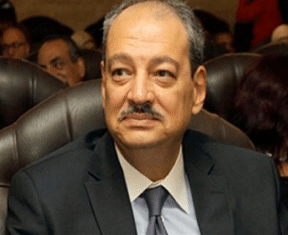 Nabil Ahmed Tawfiq Sadek, Egypt's former General Prosecutor
Nabil Ahmed Tawfiq Sadek, Egypt's former General Prosecutor
Prosecutor Sadek declined to investigate any of the petitions and pleas submitted to his office by Shawky's family and lawyers concerning his unlawful detention and prison conditions.
Hamada Elsayed Mohammed Abdel Fattah al-Sawy, Egypt's current General Prosecutor
Prosecutor al-Sawy declined to investigate any of the petitions and pleas submitted to his office by Shawky's family and lawyers concerning his unlawful detention, enforced disappearance and prison conditions.
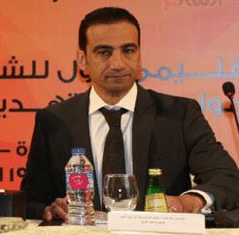 Khaled Diaa el-Din, First Attorney General of the Supreme State Security Prosecution (SSSP)
Khaled Diaa el-Din, First Attorney General of the Supreme State Security Prosecution (SSSP)
Prosecutor Diaa el-Din is listed on all of the SSSP's decisions to hold and extend the unlawful pre-trial detention of Shawky. Lawyers who specialize in SSSP cases told DAWN that all decisions made by the SSSP are issued in the name of the First Attorney General of the SSSP, not the interrogators or prosecutors who actually question the defendants.
Mohammed el-Garf, First Deputy Prosecutor of the SSSP
Prosecutor el-Garf declined to register the date of Shawky's arbitrary arrest as October 14, 2018, and instead registered it as October 20. The prosecutor effectively erased a week of enforced disappearance and mistreatment from the case records. Almost two years later, el-Garf erased Shawky's enforced disappearance between September 2 and October 6, 2020, from the records when he registered Shawky's date of arrest as October 6.
Prosecutor el-Garf rotated Shawky to a new Case No. 880/2020 and brought nearly the same charges that he had brought two years earlier without presenting any evidence. In doing so, he prosecuted Shawky for peaceful speech and activities protected by international law, in violation of an Egyptian law requirement to terminate prosecution if the charges are unfounded.
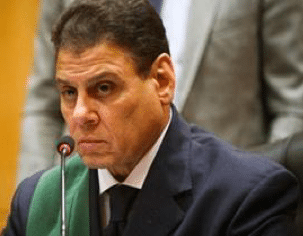 Mohamed Sherin Fahmy, Head of the First Terrorism Circuit of the Cairo Criminal Court
Mohamed Sherin Fahmy, Head of the First Terrorism Circuit of the Cairo Criminal Court
Fahmy extended Shawky's unlawful pre-trial detention on March 4 and July 22, 2020, even though no evidence was presented to establish any of the statutory conditions for pre-trial detention as stipulated in Article 134 of Egypt's Code of Criminal Procedure. The absence of the reasons for his decisions to extend Shawky's remand detention violated Article 136 of Egypt's Code of Criminal Procedure which stipulates that:
Before issuing a detention order, the investigating judge must hear the statements of the Public Prosecution and the defense of the accused. The detention order must include an explanation of the crime attributed to the accused, the penalty prescribed for it, and the reasons upon which the order is based. The provision of this article shall apply to orders issued to extend pre-trial detention, in accordance with the provisions of this law.
Shabeeb al-Damarany Abu Asr, Head of the Third Terrorism Circuit of the Cairo Criminal Court
Abu Asr canceled Shawky's release order on December 5, 2019 and extended his unlawful pre-trial detention even though no evidence was presented to establish any of the statutory conditions for pre-trial detention as stipulated in Article 134 of Egypt's Code of Criminal Procedure. The absence of the reasons for his decision to extend Shawky's remand detention violated Article 136 of Egypt's Code of Criminal Procedure which stipulates that:
Before issuing a detention order, the investigating judge must hear the statements of the Public Prosecution and the defense of the accused. The detention order must include an explanation of the crime attributed to the accused, the penalty prescribed for it, and the reasons upon which the order is based. The provision of this article shall apply to orders issued to extend pre-trial detention, in accordance with the provisions of this law.
Usama Abdel Shafy al-Rasheedy, Head of the Sixth Terrorism Circuit of the Giza Criminal Court (dissolved on November 3, 2019)
Al-Rasheedy extended Shawky's unlawful pre-trial detention on April 15, 2019, even though no evidence was presented to establish any of the statutory conditions for pre-trial detention as stipulated in Article 134 of Egypt's Code of Criminal Procedure. The absence of the reasons for their decisions to extend Shawky's remand detention violated Article 136 of Egypt's Code of Criminal Procedure which stipulates that:Before issuing a detention order, the investigating judge must hear the statements of the Public Prosecution and the defense of the accused. The detention order must include an explanation of the crime attributed to the accused, the penalty prescribed for it, and the reasons upon which the order is based. The provision of this article shall apply to orders issued to extend pre-trial detention, in accordance with the provisions of this law.
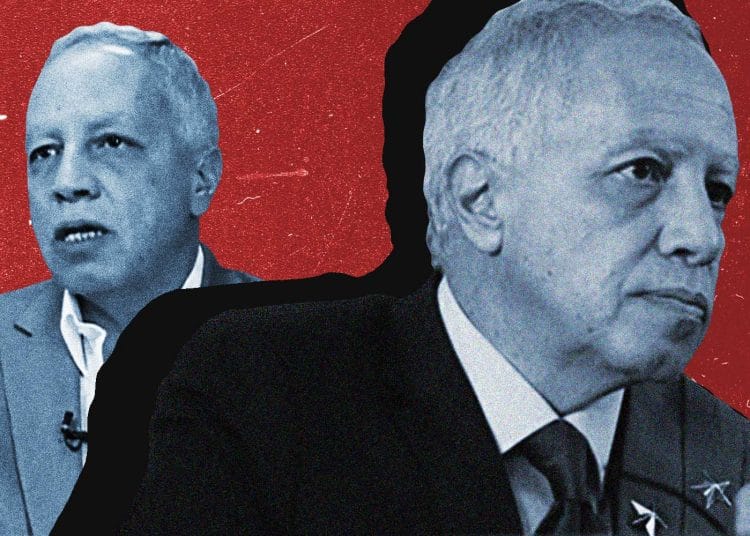
Moataz Khafagy, Head of the Second Terrorism Circuit of the Giza Criminal Court
Khafagy extended Shawky's unlawful pre-trial detention on May 7, 2020, without summoning him or his lawyers and without hearing the defense pleas. Khafagy's decicion violated Articles 136 and 143 of Egypt's Code of Criminal Procedure, stipulating that "before issuing a detention order," the investigating judge must hear "the statements […] of the defense of the accused," and that "extending remand detention" must be preceded by hearing "the statements of […] the defendant."
International Reactions
In the report 'Permanent State of Exception: Abuses by the Supreme State Security Prosecution,' published on November 27, 2019, Amnesty International highlighted Shawky's case as an example of the SSSP's systematic violations of fair trial guarantees, in particular the right to challenge the pre-trial detention. The report stated that the SSSP refused to allow Shawky's lawyers to challenge his detention "and, every time they request[ed] to submit an appeal, SSSP clerks [told] them they cannot do so."
On October 14, 2021, the third anniversary of Shawky's arbitrary and unlawful detention, the Egyptian Initiative for Personal Rights called for his immediate release.







































